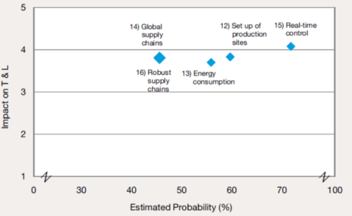Fleet tracking services have been a reliable cost-cutting effort for companies of all sizes for years. Fleet tracking systems have been used to reduce fuel costs; extend vehicle life spans; and improve efficiency among drivers. One of the less talked about benefits of fleet tracking, however, is an implicit improvement in customer service, satisfaction and retention.
According to The Aberdeen Group’s study on fleet tracking, benefits have been measured with tangible data. When companies implemented a fleet tracking system, they often realize a 23% increase in the total number of service calls completed per day, and a 16.4% increase in service revenues because of improvement in customer service alone.
Fleet tracking systems can help you forecast problems before they happen with real-time notification whenever a deviation from the delivery plan is tracked. Whether it is due to a breakdown or traffic, you can react accordingly by notifying your customers of delays before they happen.
Smart fleet tracking systems uses the vehicle's location data and road traffic to accurately estimate the estimated arrival time for each delivery, allowing you to inform your customers exactly which truck has his products, the exact location of the truck, and a realistic estimate on how long it will be before delivery.
The systems allow you to plan and offer a personalized service to each of your clients as the time for unloading for each client is different. Fleet tracking systems learn how long it takes to serve each client at each specific address and incorporates this information in future planning.
What fleet tracking systems have you used? What are your experiences with them. I would love to hear your feedback. Leave me a comment below.
Other blogs that may interest you:
